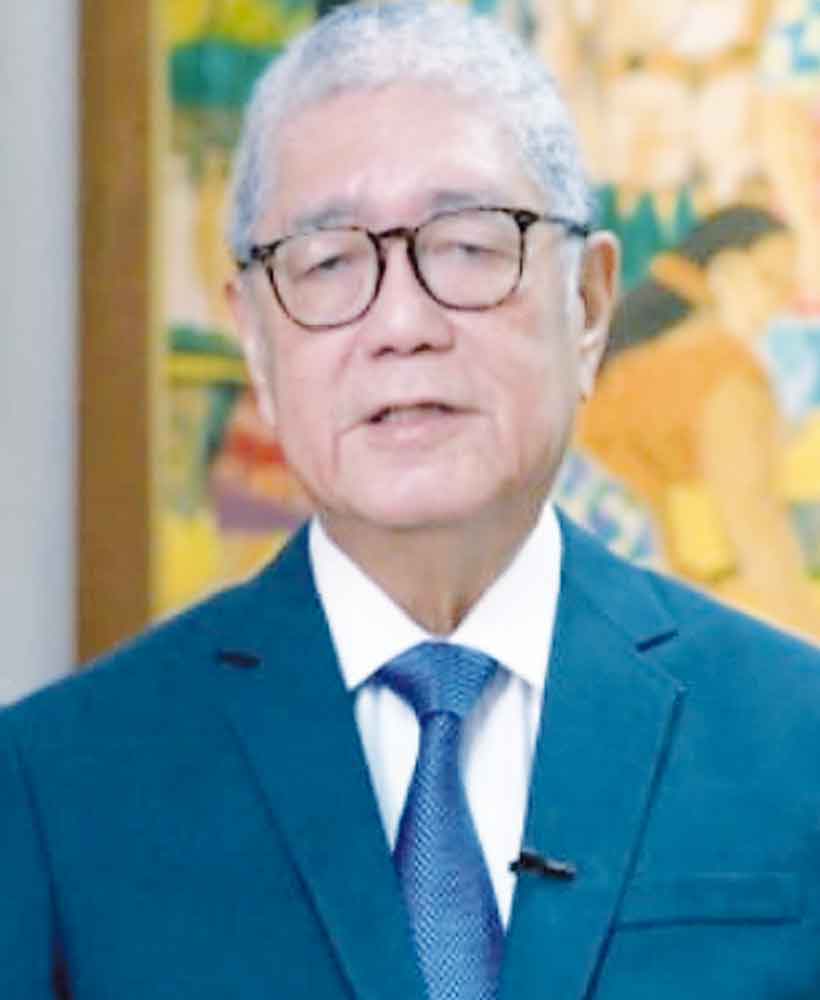
As inflation outlook shifted to downside, the Monetary Board yesterday maintained the key rates of the Bangko Sentral ng Pilipinas (BSP) and hinted a “somewhat more likely” rate cut by the next meeting in August.
BSP’s Target Reverse Repurchase (RRP) Rate remains at 6.50 percent. The interest rates on the overnight deposit and lending facilities will also remain at 6.0 percent and 7.0 percent, respectively.
Eli Remolona, BSP governor and Monetary Board chief, said they’re “on track (to) cut in the third quarter.”
“(We’re) somewhat more dovish than before,” Remolona said. He hinted at a possible total cut of 50 basis points for this year–25 basis points each for the third and fourth quarter.
Yesterday’s action was the sixth consecutive time that the Monetary Board decided to keep steady the key rates after the 0.25 off-cycle rate hike last October 27, 2023.
Remolona said they expect inflation “to go down this year and (maybe even) next year and go up by 2026 but stay within the target range.”
“The balance of risks to the inflation outlook has shifted to the downside for 2024 and 2025 due to the impact of lower import tariffs on rice under Executive Order 62. Nonetheless, higher prices of food items other than rice, transport charges, and electricity rates continue to pose upside risks to inflation,” Remolona said, stressing that inflation is moving closer to the midpoint of the 2 to 4 percent target range.
Iluminada Sicat, senior assistant governor, said the risk-adjusted inflation forecasts have eased to 3.1 percent for both 2024 and 2025 from 3.8 percent and from 3.7 percent, respectively.
This is near the middle of the government’s full-year target range of between 2 and 4 percent.
“The reduction in the inflation outlook considered the shift in the balance of risk which is now in the downside. Inflation expectation has also remained well-anchored,” Sicat said.
Prices of key consumer products continue to rise in May as inflation increased to 3.9 percent from 3.8 percent the previous month, data from the Philippine Statistics Authority showed.
May’s reading is the fastest in four months and brings the national average inflation from January to May to 3.5 percent.
Core inflation, which excludes selected food and energy items, slowed down to 3.1 percent in May from 3.2 percent in the previous month.
“There are still some uncertainties in other food items like pork, corn and fish. There’s uncertainty with electricity and transport charges. These are the main upside risks,” Remolona said.
Sicat added they are also expecting adjustments in toll rates and higher global crude oil prices.
Remolona said prospects for domestic output growth “remain in line with medium-term trends amid favorable labor market conditions and strong net exports.”
“On balance, the Monetary Board deems it appropriate to hold monetary policy settings steady at this time. The Monetary Board also anticipates price pressures to ease further in the second half of the year with the implementation of EO 62 as well as Administrative Order 20. If sustained, an improvement in the inflation outlook would allow more scope to consider a less restrictive monetary policy stance. However, uncertainty in the external environment calls for some caution against potential spillovers, including those in the financial markets,” Remolona said.
“The BSP will ensure that monetary policy settings remain in line with its primary mandate to safeguard price stability conducive to sustainable economic growth,” he added.
Aris Dacanay, economist for Asean of HSBC, said yesterday’s action “comes as no surprise.”
“The BSP’s tone was roughly the same during this meeting or perhaps slightly more dovish, not closing the possibility of it cutting ahead of the Fed. We even think the BSP was even more confident than last time, reflecting the fact that monetary policy in the Philippines may be becoming more independent from the Fed, even if partially. And we argued in our most recent central bank preview that this confidence isn’t whimsical whatsoever. We think August is still a bit too early to loosen the monetary reins. We do not think inflation will be soft enough by the August meeting with the rice tariff rate cut needing time to work its way in reducing prices. The current account deficit will also need to improve even further. And perhaps, the well-known ‘holiday-remittances’ will give the current account that boost it needs,” Dacanay said.
Miguel Chanco, chief Emerging Asia Economist of Pantheon Macroeconomics, said the statement “was very dovish, with the board now seeing that the balance of risks to inflation have shifted to the downside.”

